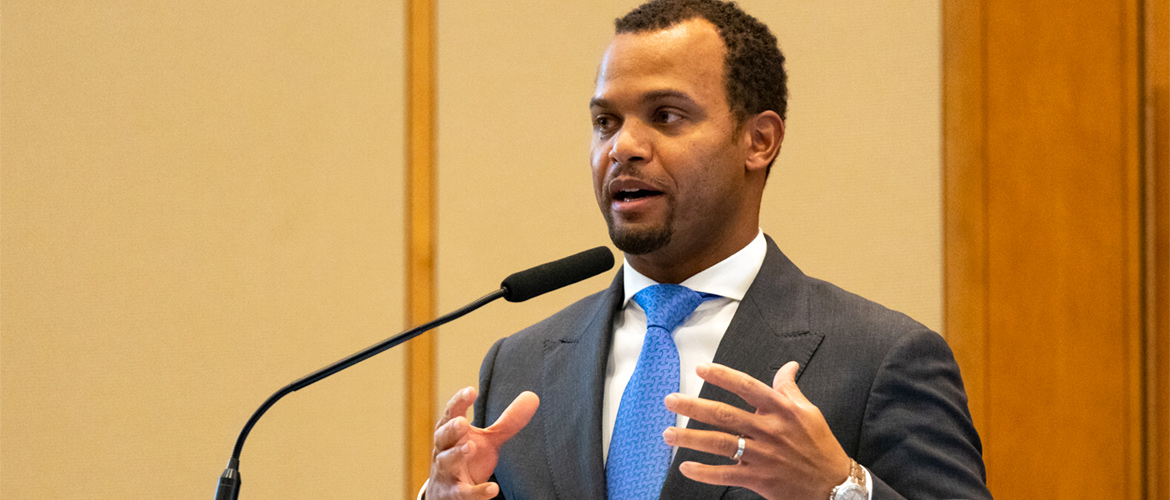Many medical providers and educators believe two tragic events in 2020 demonstrated the need for dramatic change in their profession, the COVID-19 pandemic and the nation’s racial reckoning after the death of George Floyd in Minneapolis.
That year, it became transparent that people of color become disproportionately ill — or die — because of injustices they face, including lack of equity in health care.
Experts say the pandemic exposed what the medical profession, historically dominated by White providers, has known from decades of experience and research: People of color and different ethnic backgrounds experience worse health outcomes without access to providers who look like them, speak their languages and understand the context of their needs and circumstances.
To begin making sustainable changes, Health Care Service Corporation's Illinois health plan recently convened members of Equity Matters, an initiative launched by the Accreditation Council for Graduate Medical Education (ACGME), to highlight projects developed to improve diversity, equity, and inclusion (DEI) in health care.
“When we don't have equity, we have patients not getting equal care,” says Dr. Valeria Cohran, associate chair of DEI at the Ann & Robert H. Lurie Children's Hospital of Chicago. “We have patients, unfortunately, dying because of their race or the color of their skin. If we don't deal with equity and try to improve for all, we all suffer in one way or the other.”
Launched in 2021, Equity Matters is a continuous learning and process improvement initiative focused on DEI and anti-racism practices. It aims to increase physician workforce diversity, establish inclusive learning environments and address racial inequities in health care.
“The most important thing that we've done in Equity Matters is really to build that community, to start fertilizing the ground to try to bring people together across specialties, across institutions, putting the oars in the water rowing toward that target, which is ultimately health equity,” says Dr. William McDade, the ACGME’s DEI chief.
HCSC leaders and other national, state and local health care experts and providers believe these strategies will lead to better health outcomes in communities of color. Federal health care agencies, including the Centers for Medicare and Medicaid Services (CMS), also are implementing health equity improvement policies and programs.
“This has to become the fabric of how we work together, how we provide care, how we do business,” says Dr. Derek Robinson, vice president and chief medical officer of HCSC’s Illinois plan. “It's going to be part of how care is delivered going forward.”
HCSC’s Illinois plan began addressing inequities a few years before the pandemic by measuring health outcomes and collaborating with doctors and hospitals to improve the quality of care they provided patients. In 2020, it developed its Health Equity Hospital Quality Incentive Pilot Program to improve health outcomes, as well as boost physician workforce diversity and cultural competency and address unconscious biases and stereotypes that influence behavior.
The hospital health equity program supports 13 hospitals and academic medical centers serving the highest concentrations of Illinois members at most elevated risk of COVID-19 infection in Illinois. The goal is to improve care quality by reducing racial and ethnic health care disparities for members who get care at those health systems.
“This has to become the fabric of how we work together, how we provide care, how we do business.”
"Our mission is to improve lives and build stronger communities through better health,” says Dr. Rajesh Govindaiah, chief physician executive at Memorial Health in Springfield, which participates in the program. “We cannot be successful in our mission of building stronger communities if we don't represent and reflect the community that we serve from the most rural to the most urban, from the most affluent to the least affluent."
Meantime, the Illinois plan is increasing the number of providers who receive value-based payments and including health equity as a core component of the quality program. The company also is examining disparities in COVID-19 care, maternal care and telehealth use.
Additionally, the Illinois plan launched its Institute for Physician Diversity to partner with academic medical centers, teaching hospitals and associations to increase physician workforce racial and ethnic diversity. Participating academic medical centers, as well as residency and fellowship programs, will be rewarded for their diversity.
“Our physician diversity work, coupled with the expansion of our quality focus on equity, is truly leading in the health insurance industry,” Robinson says.
About 100 medical professionals from across the country participated in the two-day Equity Matters symposium, including providers and representatives from the seven hospitals in the Illinois plan’s health equity program. Topics included recruitment and retention initiatives and development of sustainable DEI training models and strategies.
Dr. Whitney Lyn, a family medicine physician at Cook County Health, was among the symposium presenters, discussing her institution’s efforts to recruit a more diverse pool of graduate medical students.
“We want to draw on more of that so that more of our patients see people that look like them,” Lyn says. “I appreciate that the ACGME is collaborating with (HCSC) to start having everyone talk about this concept of diversifying the work group and how we can build a better community among our most vulnerable populations.”
Dr. Sharon Robinson, assistant dean of diversity in graduate medical education and pediatrician with the Chicago area’s NorthShore University HealthSystem, agrees.
“Organizations like ACGME and (HCSC) understand that they see the challenges, they see the opportunities and they have been a tremendous resource to organizations and health systems such as mine at NorthShore, where this work is very new to us,” she says. “It is so important to make sure that we have a diversity of thought, a diversity of lived experiences in order to address racial health disparities.”

